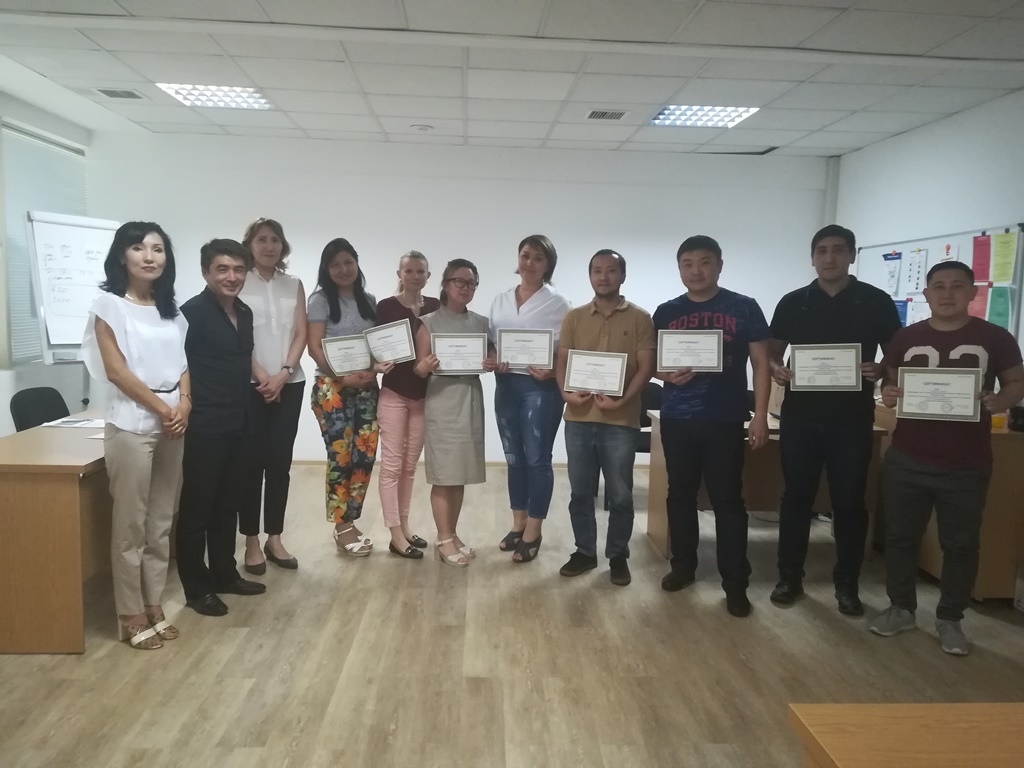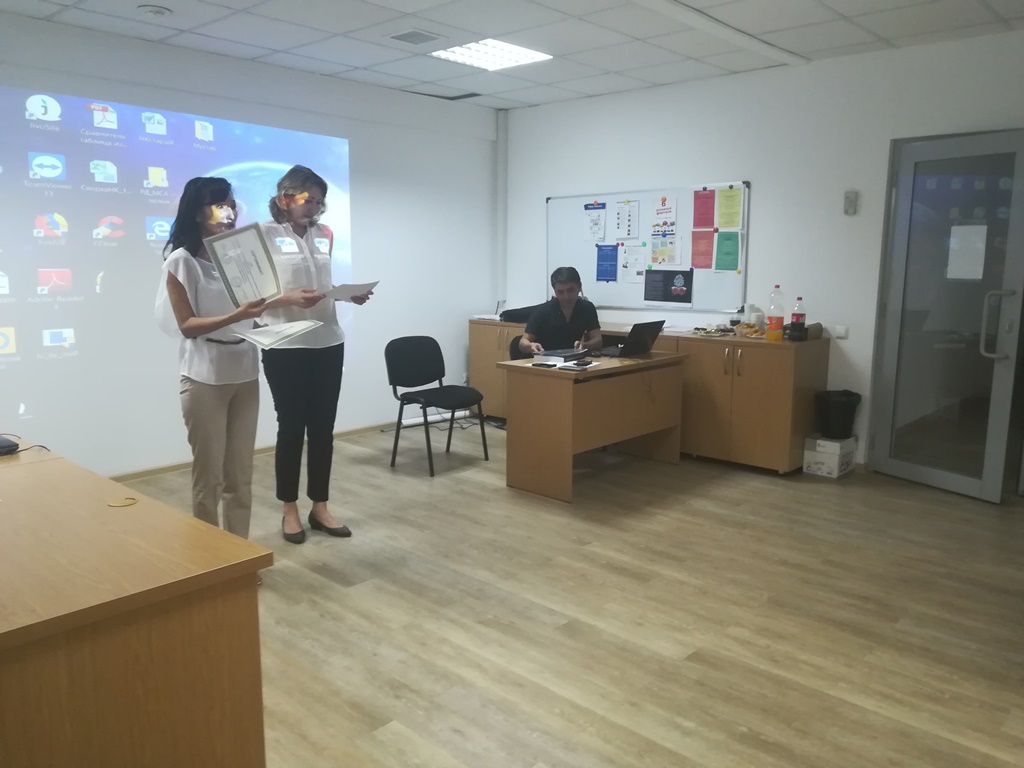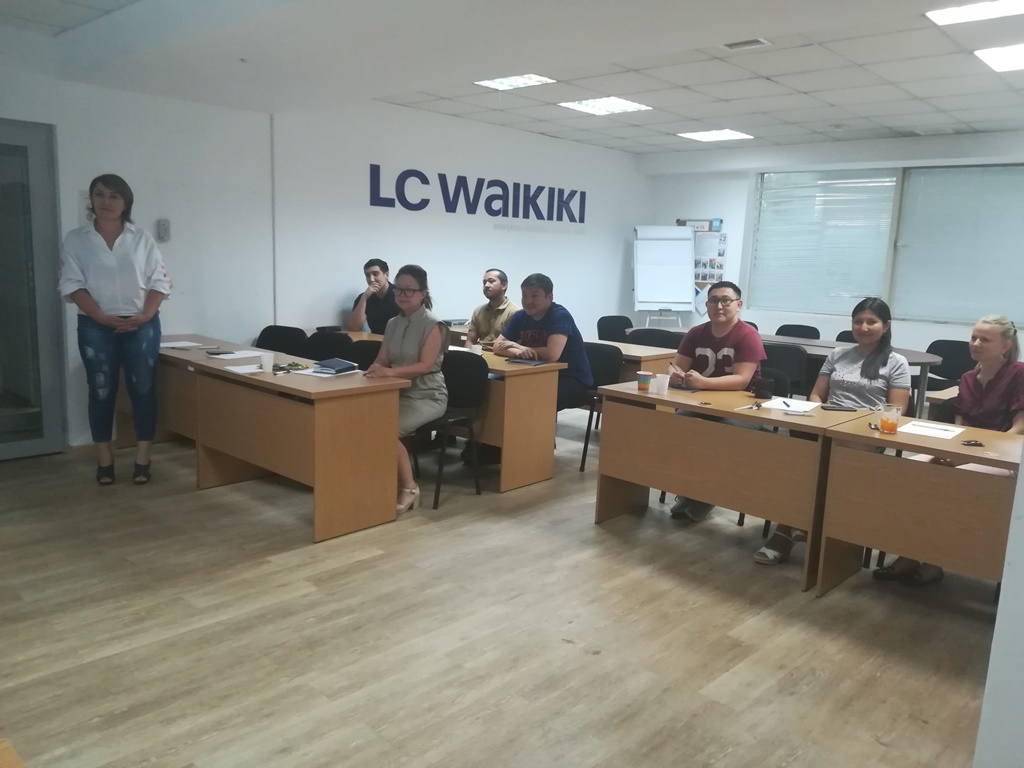On 27-28 June 2018 at SAT Business Centre MinTax Group conducted a seminar for employees of financial and accounting departments of TEMA RETAIL LLP dedicated to the subject: “Issues of practical application of changes in the Kazakhstan’s tax legislation introduced by the new Tax Code ”.
Our lecturers covered the main changes relating to tax administration, corporate income tax (CIT), value added tax (VAT), international taxation, taxation of individuals enacted from 1 January 2018.
Program of the Seminar on the subject:
“Issues of practical application of changes in the tax legislation
of the Republic of Kazakhstan introduced by the new Tax Code of the RoK[1]”
Yerlan Galiev, Independent Partner of MinTax Group, Ph.D. (Law), Advocate:
1.Changes in tax administration
1.1 New requirements and possibilities in the Risk Management System, their effect on the taxpayer’s business (green zone, rapid VAT refund, etc.)
1.2 Changes in tax inspections
1.3 Tax monitoring
1.4 Changes in the procedure for recognizing the fulfillment of an in-house review notice. In-house review of transactions with “false business entities”.
1.5 New requirements related to disclosure and fulfillment of tax liabilities on CFC (controlled foreign companies) for multi-level companies
1.6 Other aspects of changes in the tax administration procedure
Gaukhar Narbekova, Partner of MinTax Group, Director of Audit Department, RoK Auditor:
2. Corporate Income Tax (CIT)
2.1 Specification of the list of revenues not included in the aggregate annual income (AAI)
2.2 Specification of the date of recognition of sales revenues
2.3 Clarifications on recognition of income from doubtful liabilities and assets received free of charge.
2.4 Clarifications on recognition of income from capital gain
2.5 Inclusion of total CFC proceeds to the AAI
2.6 Changes in determining taxable items when using social sphere facilities
2.7 Changes on CIT for financial sector
2.8 New regulations of the Tax code related to deductions
2.9 Deductions on doubtful claims
2.10 Changes in respect of the terns of application and taxation of finance leases.
2.11 Changes in respect of spoilage or loss of goods
2.12 Replacement of regulations on “false business entities” with fraudulent transactions
2.13 Clarifications on deductions of employees’ business trip expenses
2.14 Issues related to deduction of interests and indexation of loan amounts
2.15 Deductions of geological exploration expenses and other deductions of subsurface users
2.16 Separate accounting of contractual and non-contractual operations during the exploration period
2.17 Fixed assets’ deductions
2.18 Procedure for CIT accounting when taxes are paid in kind
2.19 Specification of CIT terms for other taxpayers
2.20 Changes on CIT advance payments
3. Value-Added Tax (VAT)
3.1 Main changes and structure of the Tax code related to VAT
3.2 List of taxpayers and VAT registration
3.3 Modernization and cancellation of VAT privileges
3.4 Specification of the place of sale
3.5 Clarifications on accounting for VAT turnovers and date of taxable turnover
3.5.1 Finance leases
3.5.2 Sale of goods against coupons or cards
3.5.3 Transfer of assets as a contribution to the authorized capital and its refund
3.5.4 Size of taxable turnover on balances of goods
3.5.5 Size of turnover when goods, work, services are sold to employees
3.5.6 Size of turnover related to pledged assets
3.5.7 Replacement of 0% VAT rate with tax exemption in case of exporting some products
3.5.8 Subsidies, except for those specified in Article 372, have become subject to VAT
3.5.9 Size of turnover when goods, work, services are purchased from non-residents
3.5.10 Date of referring VAT to offset
3.5.11 VAT not subject to offset
3.6 Procedure for determining amounts of VAT authorized to be offset by proportionate method
3.7 Changes in the procedure and deadlines for issuing invoices
3.8 Changes in the procedure for the preparation of registers of suppliers and buyers
Mukhtar Bekzhigitov, Partner of MinTax Group, Tax Department:
4. Main changes in respect of taxation of income of employees’ (residents and non-residents) and non-employees (lump sum payments to individuals under civil legal contracts, payments of material nature)
4.1 PIT changes (including detailed explanations on deductions)
4.2 Reduction of Social tax rate and other modifications
4.3 New features in social payments from 2018 (including OSMI, OPC, and social assessments)
Aliya Vaissova, Senior Manager, Tax Department:
5. International taxation
5.1 Expansion of the list of revenues from Kazakhstan sources.
5.2 Specification of the norms related to the definition of a dependent agent.
5.3 Specification of the procedure for determining the non-residents’ income from providing recruitment services.
5.4 Changes on tax exemption of income in the form of dividends.
5.5 Exchange differences in calculating tax liabilities of the non-resident’s permanent establishment.
5.6 Changes in the application of international agreements (residency certificates, expansion of the list of documents, exclusion of a conditional bank deposit).
5.7 Changes in the deadlines for reviewing a residency application by RoK tax authorities, as well as issuing a certificate on amounts of income received from sources in the RoK.





